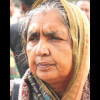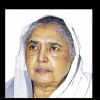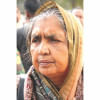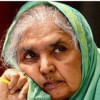Remembering Matia Chowdhury: A distinguished life

In the pre-independence days, Bangladesh had two distinct batches of politicians. During the 1950s, leaving aside those in the Muslim League who came from Nawab families or were non-Muslim intellectuals, most politicians were first-generation educated Muslim youth with rural background. Their link to their roots were reflected in their humble ways of living. Their first taste of politics was their involvement in the Language Movement. Many of them later became lawyers or pursued other professions.
The next batch consisted of student leaders during the 1960s who led the struggle against the military regime of Pakistan and then continued on a political path. They also maintained a simple, middle-class lifestyle, albeit with an urban touch. While many of those who were involved with the Language Movement could not continue due to atrocities that followed the imposition of martial law in Pakistan in 1958, the batch of 1960s remained active in politics of different shades in the run-up to the Liberation War. They carried the public image of highly dedicated patriots and heroes of the freedom struggle.
But the situation changed completely after independence. Power became the decisive factor in their way of living, and that changed public perception, which has continued till date. Whether in power or outside, businessmen, industrialists, and former civil or military bureaucrats became dominant among politicians.
Our dear friend Matia Chowdhury, who passed away on October 16, was an exception. She was a seasoned politician, having been elected a member of parliament for one and a half decades, sworn in as a minister for two terms, and appointed as the deputy leader of the House in the previous government. Unlike the vast majority, she and her late journalist husband, Bazlur Rahman, who was the editor of a vernacular daily, lived in a 1,400 sq-ft flat in the city. She did not have a car of her own. Even as a minister, she would walk to and shop at her favourite kitchen market. She was usually seen donning a cotton saree and avoided luxurious attire. In practice, she meticulously followed her lifestyle from the 60s. She was a down-to-earth politician who could communicate easily with common men and women.
Matia Chowdhury loved walking. Once Dr Zafar Iqbal and I were travelling to her constituency in Nalitabari, Sherpur to lay the foundation stone for a martyrs' memorial school and college. She got out of her government-issued car and walked for hours on the village road, much to the dismay of civil servants. With a simple living and hard work, Matia was a rare specimen of a politician. She broke the public perception of those in power or even those who move in the corridors of power.
Our acquaintance spanned for more than 60 years. I remember meeting her at the student union office at Dhaka Medical College during the 1962 students' movement. She was leading the students of the then Eden College, which is now Begum Badrunnessa Government Girls' College. We worked together at the East Pakistan Students' Union. Soon, she became known as "Agnikanya" for her fiery speech. She became probably the most popular student leader.
After the Pakistan military launched its genocide campaign on March 25, 1971, Matia was in our group that moved through villages to cross the border to participate in the Liberation War. I remember our group having made a stop at the house of Matiur Rahman's aunt in Kapasia. But since Matia had become a popular figure, the villagers recognised her, much to the embarrassment of Matiur Rahman, and we had to move earlier than planned. After independence, she became too busy with politics. Still, she remained our closest family friend. The sudden death of her husband, at too young an age, had a severe effect on her that she carried till her final days.
Matia Chowdhury was very keen on preserving the memories of the Liberation War. She took an exceptional move to donate all that she received after Bazlur Rahman's death to the Liberation War Museum so it could introduce the Bazlur Rahman Award for Liberation War-related media reporting. She closely worked with the relevant jury board for this purpose every year. Not only our family, but the museum and dedicated journalists will also miss her. May her soul rest in peace.
Dr Sarwar Ali is a trustee of the Liberation War Museum.
Views expressed in this article are the author's own.
Follow The Daily Star Opinion on Facebook for the latest opinions, commentaries and analyses by experts and professionals. To contribute your article or letter to The Daily Star Opinion, see our guidelines for submission.

 For all latest news, follow The Daily Star's Google News channel.
For all latest news, follow The Daily Star's Google News channel. 








Comments